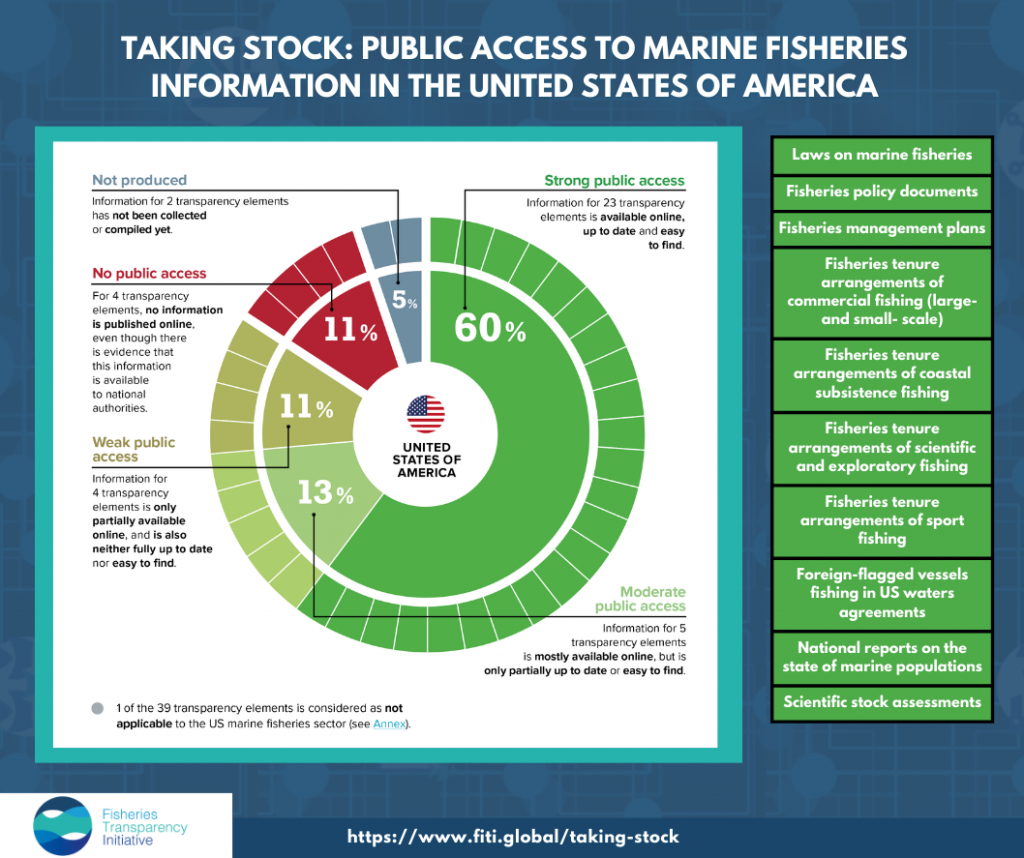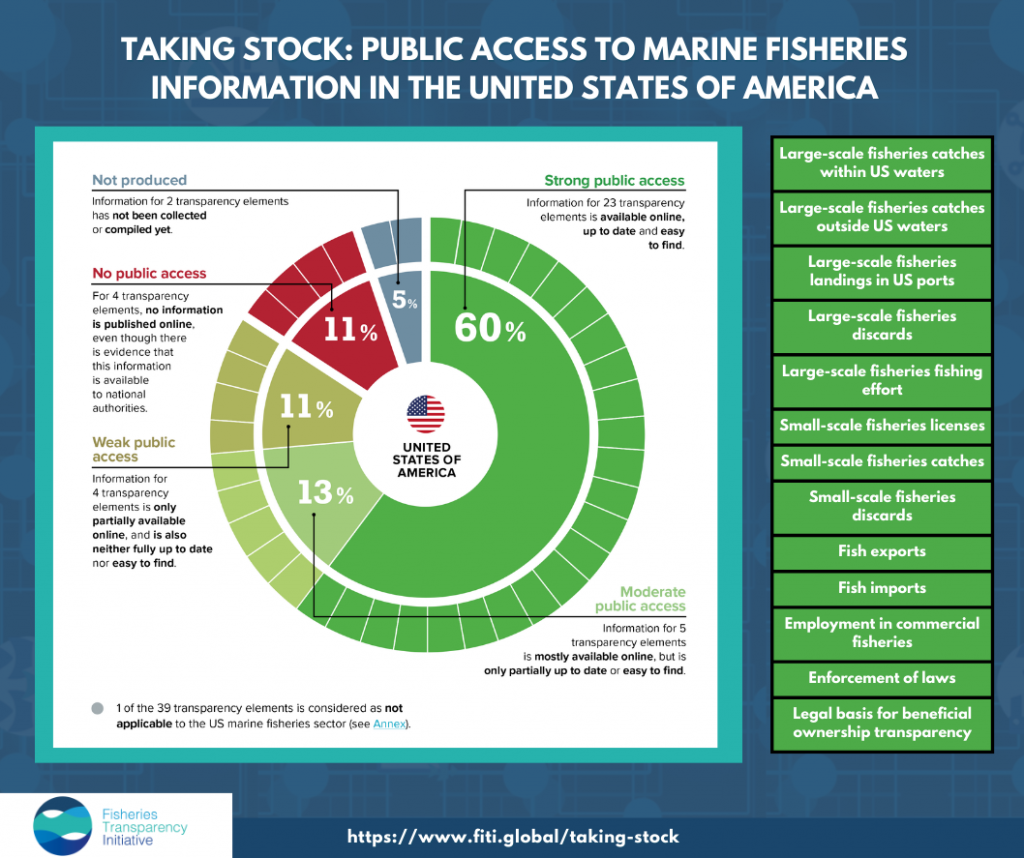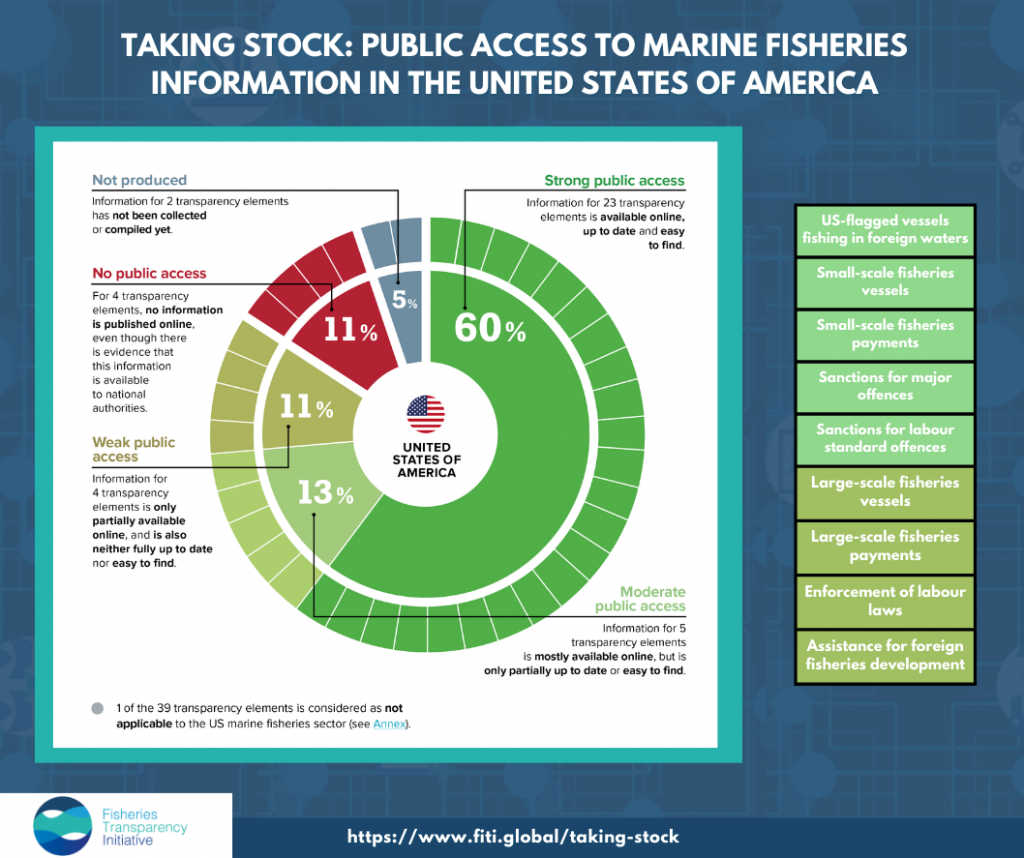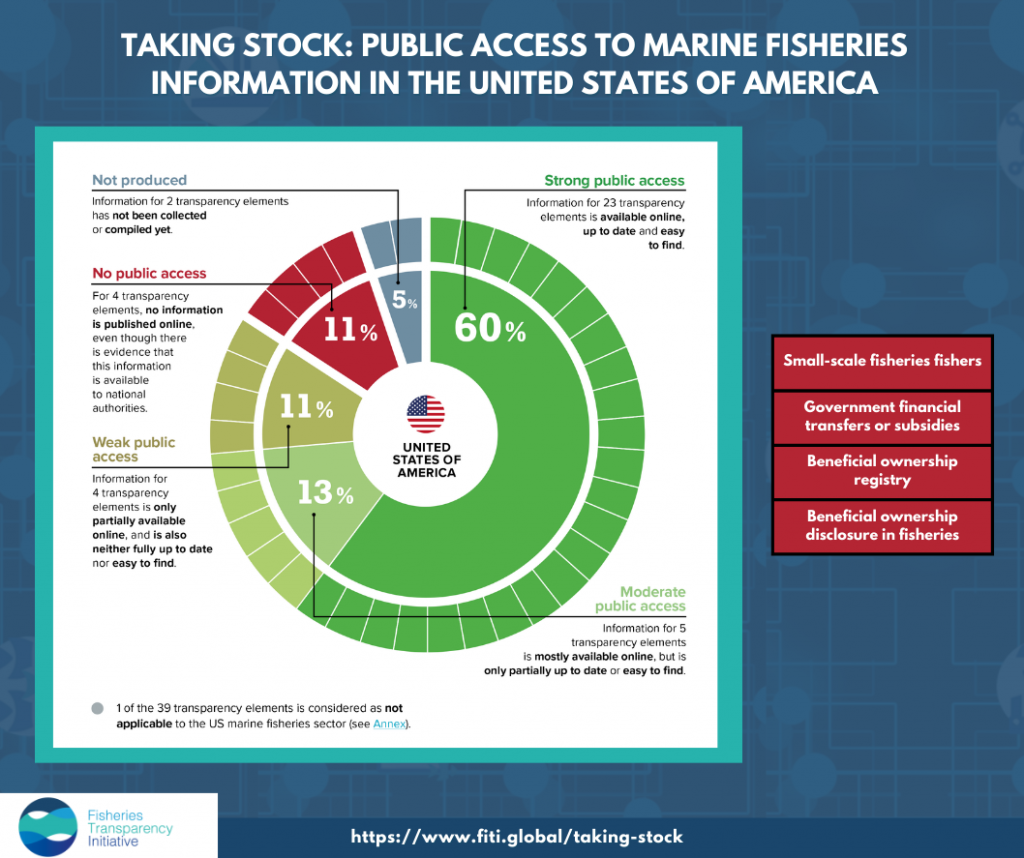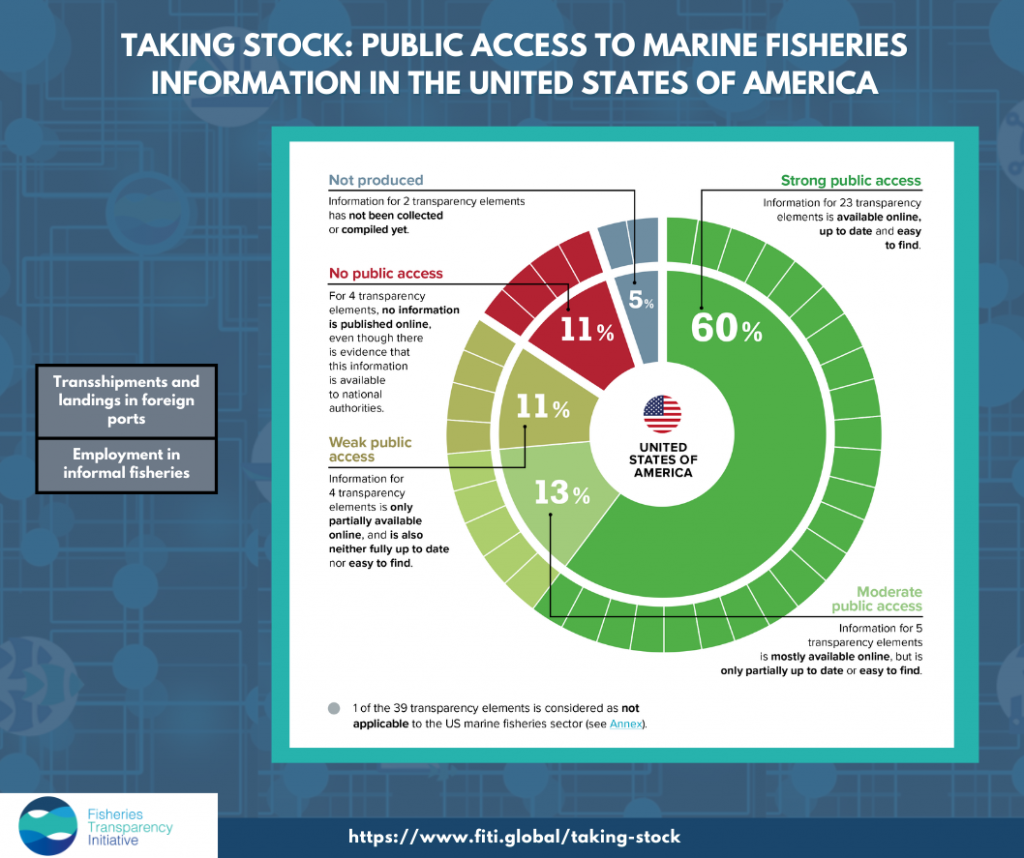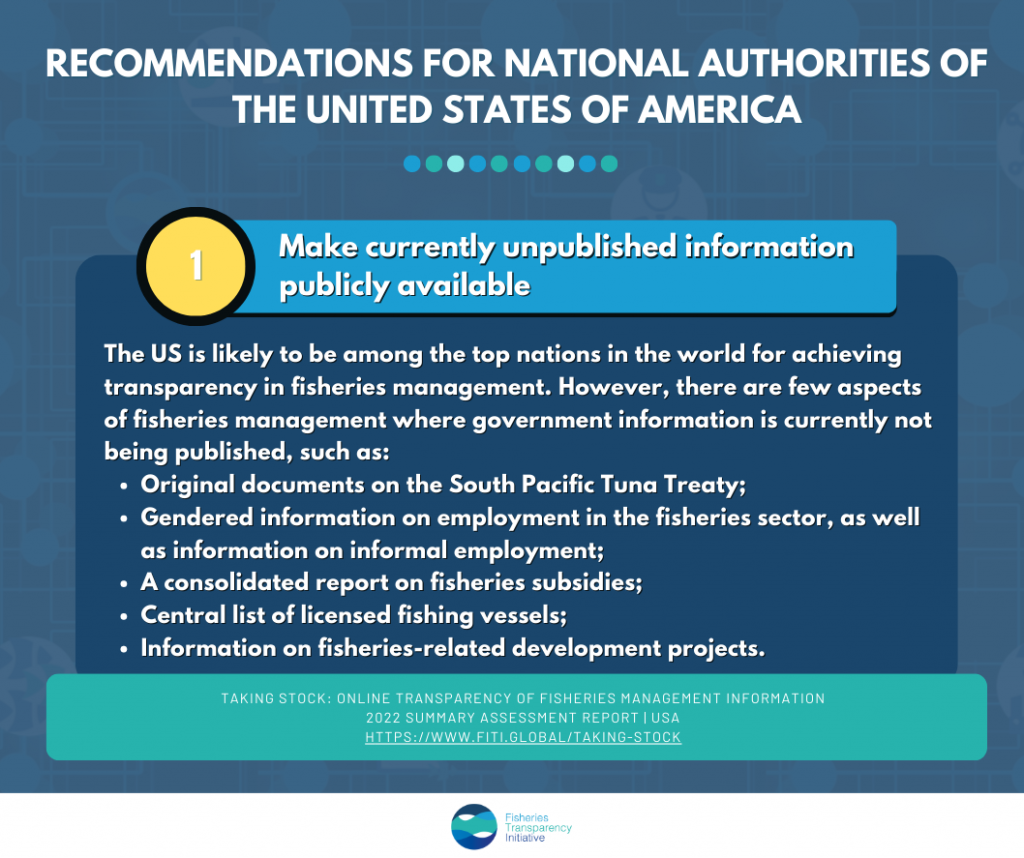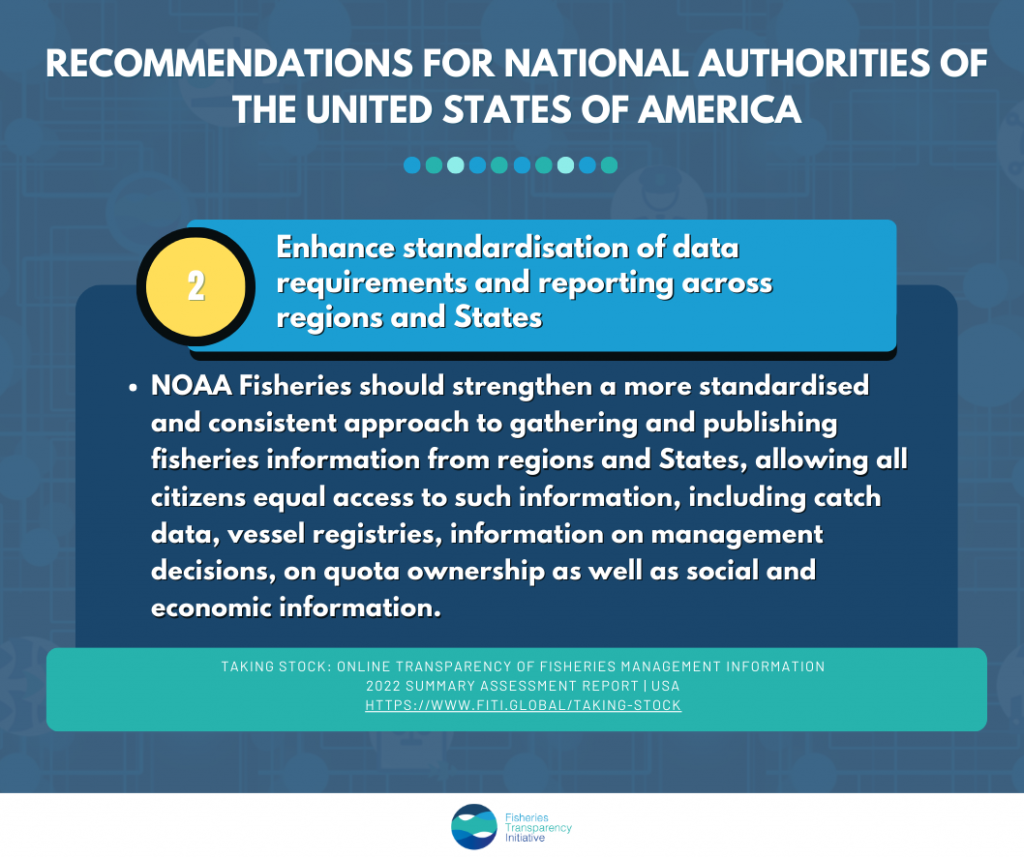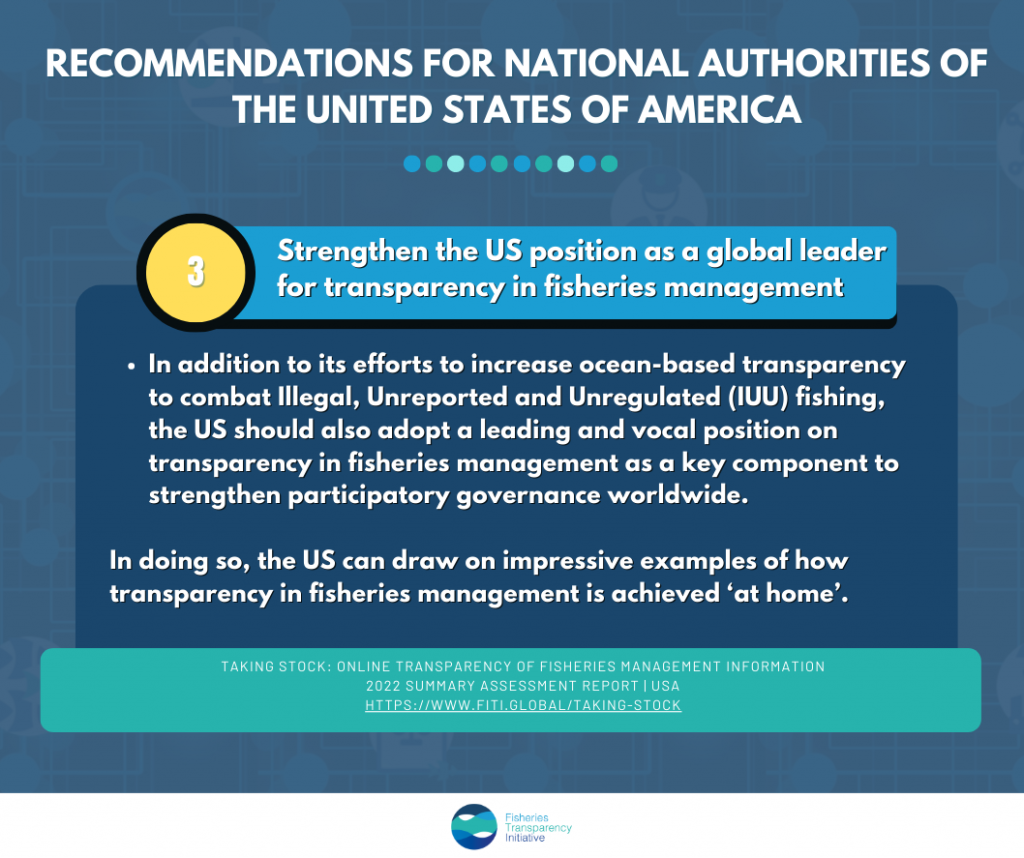United States among top nations regarding transparency of fisheries management, new TAKING STOCK assessment shows
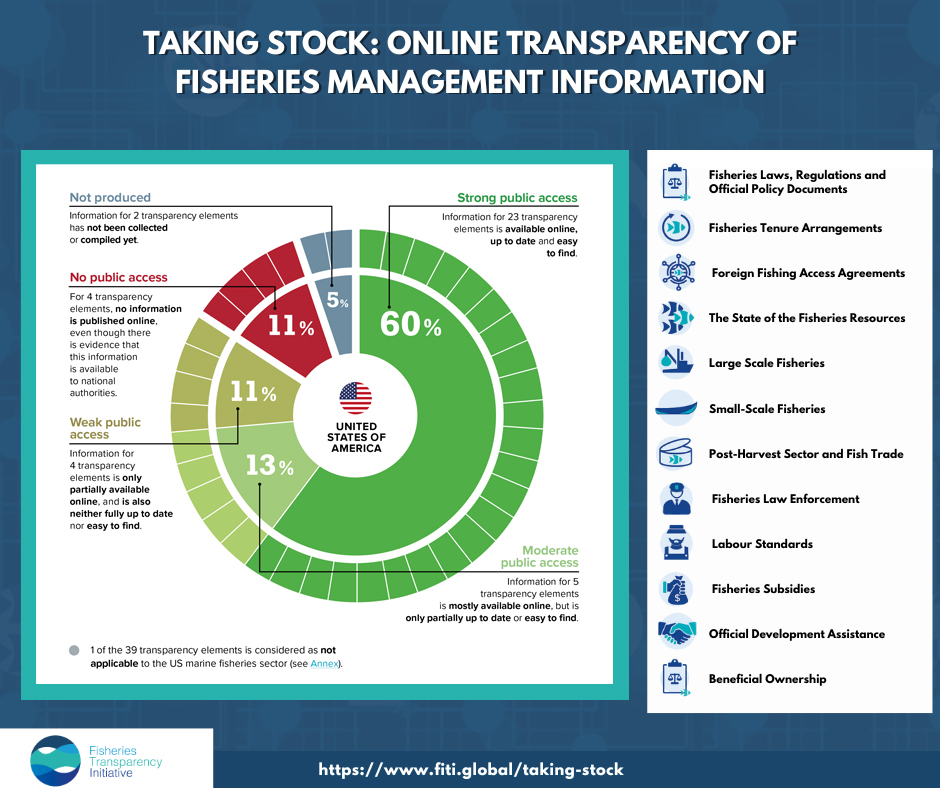
28 February 2023. In its latest TAKING STOCK transparency assessment, the Fisheries Transparency Initiative (FiTI) evaluated the amount of fisheries information that national authorities in the United States (US) make publicly available via government websites. The assessment shows that the US fisheries sector is characterised by very high levels of public access to information, making the country’s approach to transparency in fisheries management one of the most impressive globally.
Based on the requirements of the FiTI Standard, these TAKING STOCK assessments review transparency across 12 thematic areas of marine fisheries management, evaluating whether government information is publicly accessible, up to date and easy to find.
The findings of the TAKING STOCK assessment demonstrate that US national authorities consider collating and publishing information online on the country’s marine fisheries sector as an essential aspect of fisheries management. The primary national authority which provides public access to information on marine fisheries management is the fisheries department of the National Oceanic and Atmospheric Administration (NOAA). Commonly referred to as NOAA Fisheries, the authority faces considerable challenges in making consolidated fisheries data available on their website due to the complexity of the sector. For example, there are a large number of diverse fisheries in the US, as well as a management approach that divides responsibilities between authorities at a federal, regional and state level. The fact that this TAKING STOCK assessment shows NOAA Fisheries as well as other national authorities publish a large amount of information that meets most of the transparency requirements of the FiTI Standard is therefore even more noteworthy.
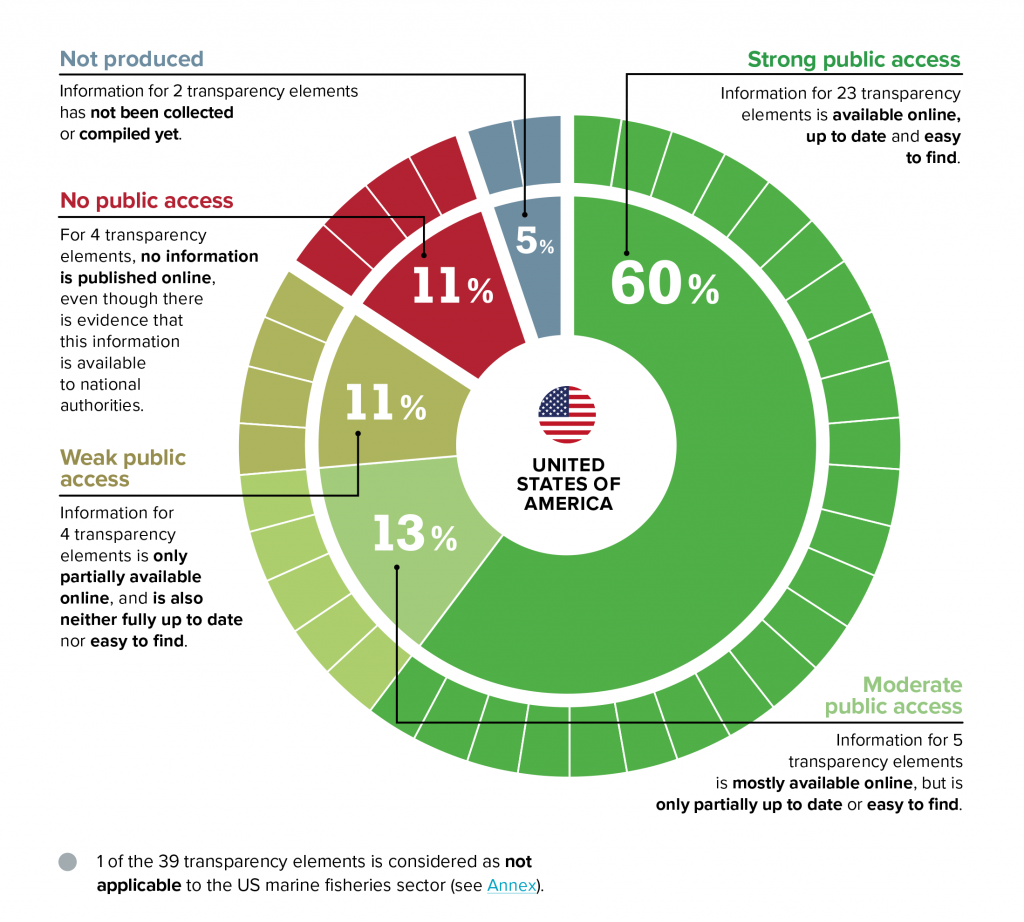
The assessment also reflects the importance US national authorities attach to civic participation. Whether by promoting public participation in decision-making forums or helping the public to understand complex fisheries information, the US government’s approach to fisheries management demonstrates an understanding that transparency is not just about publishing raw data but also making sure this information is easy to find and comprehensible. In this regard, national authorities in the US dedicate considerable efforts to producing both technical publications and scientific databases, as well as podcasts, videos and animations on topics like stock assessments and catch share programmes. US citizens are therefore given access to comprehensive information that allows them to build an understanding of a range of key issues in fisheries, ranging from the sustainability of fishing to how tenure rights work and are enforced. The US is also a pioneer in using new technology to capture data in fisheries, including through stakeholder initiatives, such as the Net Gains Alliance.
This means the US could be a standard bearer for transparency in fisheries management, not only in terms of the breadth of information published, but also how this is information is made accessible and understandable for the public.
At the same time, some important information is not disclosed by national authorities, and the US fails to meet several globally agreed commitments on transparency. Four issues stand out:
- US national authorities do not publish information on fishery subsidies. This is surprising given how much attention subsidies receive in global debates on fisheries reform.
- Federal information on the economics of fishing activities is detailed and up to date, but there is sparse information on the post-harvest sector. There is also limited information on gender in fisheries and informal employment. There are regional variations: social and economic information on Alaska’s fisheries is far more extensive than it is for other regions.
- There is an inconsistent approach to publishing information on fishing vessels and ownership of fishing rights. For several US regions, this data is limited or unavailable. Publishing a centralised vessel registry and implementing transparency on the beneficial ownership of fishing rights are internationally agreed commitments for responsible fisheries management.
- The US has established itself as a global leader in the fight against Illegal, Unreported and Unregulated (IUU) fishing. However, there is a lack of information in the public domain on the outcomes of specific activities used to combat IUU fishing domestically, particularly the results of law enforcement activities by the US Coast Guard. A database on criminal violations of US laws on the import and export of fish species, held by the Fish and Wildlife Service, is also treated as confidential.
The assessment concludes with three concrete recommendations to US national authorities, encouraging the government to undertake activities that will allow it to attain even higher levels of transparency in fisheries management, as well as to adopt a leading and more vocal position on transparency in fisheries management as a key component to strengthen participatory governance worldwide. In doing so, the US can draw on impressive examples of how transparency in fisheries management is achieved ‘at home’.
According to Dr Andre Standing, FiTI’s Technical Advisor and lead researcher for this assessment: “Many organisations think quite narrowly about fisheries transparency and how it is needed to fight IUU fishing. But the US is a really good example to show that transparency is far more than this. A lot of the success in the management of fisheries in the US derives from civic engagement and open government. While no country is perfect, and many don’t have the resources the US authorities have, there is much for other countries to take from the US to improve their fisheries transparency”.
The TAKING STOCK assessment for the United States is available for download as a Summary Assessment Report as well as a complementary, in-depth Detailed Assessment Report:
The United States’ assessment was funded by the Gordon and Betty Moore Foundation and carried out under the supervision and responsibility of the FiTI International Secretariat.
